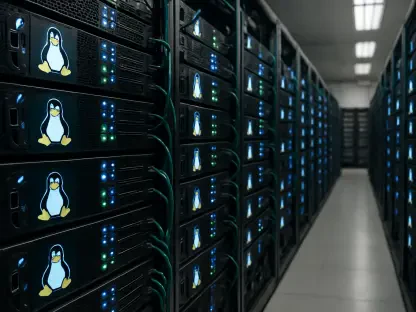In a city renowned as the epicenter of political discourse and international affairs, Washington, D.C., has long faced a surprising shortage of professional-grade broadcast facilities, leaving media producers scrambling for adequate spaces to create high-quality content. Broadcast Management Group (BMG) is stepping in to address this critical gap with the opening of two state-of-the-art broadcast studios in Upper Northwest D.C. Strategically positioned near iconic landmarks like Capitol Hill and the White House, as well as major airports, these purpose-built facilities promise to redefine the production landscape in the nation’s capital. Designed to support a wide range of programming—from news and sports to entertainment and corporate communications—this development signals a significant milestone for both BMG and the city itself. With bookings already available for 2026 and beyond, the studios are poised to meet the growing demand for modern, versatile production spaces in a hub of global significance, setting a new standard for broadcast excellence.
Revitalizing D.C.’s Media Infrastructure
Addressing a Long-Standing Gap
For years, Washington, D.C., has struggled with a lack of professional broadcast studios, a void left by the closure of legacy venues that once served as key production hubs. BMG’s initiative to introduce two full-scale studios in the city represents a much-needed response to this persistent challenge. Located in a prime area of Upper Northwest, the facilities are tailored to accommodate diverse content needs, ranging from daily political talk shows to live sports coverage and corporate messaging. This move not only fills an infrastructure deficit but also positions D.C. as a renewed center for media creation. By offering spaces equipped for multi-camera productions, BMG is catering to networks, agencies, and corporations seeking high-quality environments to bring their visions to life. The strategic placement near key decision-making centers further enhances the appeal, ensuring that producers have easy access to talent and resources vital for impactful programming in a city that thrives on information exchange.
Meeting Diverse Production Demands
Beyond simply providing physical space, BMG’s new studios are designed with versatility at the forefront, capable of supporting an array of programming genres. Whether it’s delivering breaking news broadcasts, crafting engaging entertainment content, or producing polished corporate communications, these facilities are built to adapt to varying client requirements. The emphasis on flexibility reflects an understanding of the dynamic nature of modern media, where projects often demand quick turnarounds and specialized setups. With the ability to host everything from pre- and post-game sports shows to branded content for agencies, BMG ensures that clients across sectors find a reliable partner in their production endeavors. This adaptability is further amplified by the integration with BMG’s broader network, allowing seamless connectivity for both local and international broadcasts. As a result, the studios stand as a beacon for innovation, ready to empower creators in a city where storytelling shapes public opinion and policy on a global scale.
Advanced Facilities and Industry Impact
State-of-the-Art Technical Capabilities
At the heart of BMG’s new D.C. studios lies a commitment to cutting-edge technology, ensuring that clients have access to some of the most advanced production tools available. The facilities include an existing Insert Studio alongside two larger spaces under construction, known as Studio A and Studio B, each offering expansive dimensions for ambitious projects. Integrated with BMG’s proprietary Cloud Broadcast Network Operations Center, these studios boast features like multiple control rooms, virtual set technology, high-end graphics systems, and global transmission options via satellite, fiber, and VoIP. Amenities such as capacity for a 150-person live audience, green rooms, private entrances, and full production packages with cameras, lighting, and editing suites further elevate their functionality. This robust setup enables seamless live broadcasts worldwide, meeting the fast-paced demands of today’s media landscape while providing a professional environment where creativity and technical precision converge effortlessly.
Strategic Importance and Industry Trends
The decision to establish these studios in Washington, D.C., underscores the city’s unparalleled significance as a media hub, a point emphasized by BMG’s leadership. With access to skilled production professionals, prominent on-air talent, and major domestic and international news networks, D.C. offers a unique ecosystem for broadcast activities. This development aligns with a broader industry trend favoring centralized, technologically advanced facilities in strategic locations that can support both local and global media needs. BMG’s integration of these studios with their wider network ensures instant broadcast capabilities, a critical asset in an era where speed and connectivity define success. Additionally, the comprehensive service model—ranging from production-only support to full creative packages including show development and post-production—caters to diverse budgets and scopes, making high-quality production accessible to a wide clientele. This forward-thinking approach not only addresses current demands but also anticipates future shifts in the industry.
Reflecting on a Transformative Milestone
Looking back, BMG’s launch of two cutting-edge broadcast studios in Washington, D.C., marked a defining moment in addressing the city’s chronic shortage of professional production spaces. The facilities, equipped for a spectrum of programming and bolstered by advanced technology, filled a crucial void while reinforcing D.C.’s status as a pivotal media center. As a next step, stakeholders in the broadcast industry might consider how such infrastructure can further evolve to support emerging formats like immersive digital content or AI-driven production workflows. Exploring partnerships with educational institutions to train the next generation of media professionals could also ensure long-term sustainability. Additionally, leveraging these studios as testing grounds for innovative broadcast technologies might pave the way for even greater advancements. This initiative by BMG served as a catalyst for growth, inviting industry players to rethink how strategic locations and state-of-the-art facilities can shape the future of media creation in dynamic urban hubs.









